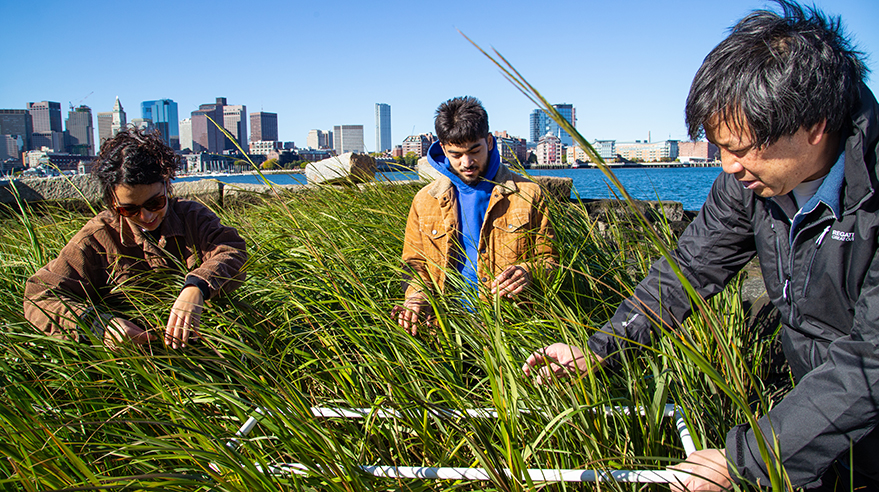Traditional Ecological Art & Science: Designing Sustainable Shorelines
Principal Investigators and Partners
Robert Chen, Professor of Carbon Biochemistry, University of Massachusetts Boston
Lois Hetland, Professor of Art Education, Massachusetts College of Art and Design
Cedric Woods, Director, Institute for New England Native American Studies (INENAS)
Kim Starbuck, Senior Research Associate, Urban Harbors Institute at UMass Boston
Melinda Vega Maldonado, Community Engagement Coordinator, Neighborhood of Affordable Housing (NOAH)
Rebecca Shoer, Cabot Education and Community Engagement Program Manager, Stone Living Lab

Abstract
More than 50 percent of the U.S. population lives in the nation’s coastal watersheds, and in Massachusetts, 75 percent of the population lives in coastal counties. Despite clear present and future vulnerability to sea-level rise, coastal flooding, and increasingly frequent and intense nor’easters, coastal communities struggle to establish robust, sustainable, and equitable management solutions. For millennia, traditional ecological knowledge (TEK) approaches have allowed various indigenous communities to maintain a sustainable relationship with their environment. Clearly, TEK approaches that embrace local knowledge can be used to design systems that remain sustainable over long periods of time, resilient to a variety of variables and external drivers. By integrating TEK approaches with state-of-the art science approaches that involve the growing field of nature-based solutions, cutting-edge sensor technologies, and interdisciplinary predictive modeling, we expect TEAS-DeSS will enable sustainable designs of resilient coupled-natural and human coastal systems. To develop a robust, sustainable solution, integrating knowledge and design with early engagement of stakeholders (i.e., community-based participatory research) has been shown to be effective. In addition, much of society is not engaged in community issues that are perceived as “science,” but a much larger sector of society is engaged in visual narratives of complex systems that integrate cultural values and history. Finally, children have been shown to be effective conduits to adults of knowledge of and engagement in environmental issues. We are therefore proposing to support the youth development of sustainable shoreline designs in collaboration with coastal resilience experts and coastal communities using an approach that integrates art, design, science, and local knowledge.
Updates/Reports
Publications
Project Information
Started: February 2022
Completed:
Funded under: NOAA Sea Grant biennial call for proposals
Relevant Links
Institute for New England Native American Studies
Urban Harbors Institute at UMass Boston
Neighborhood of Affordable Housing (NOAH)
